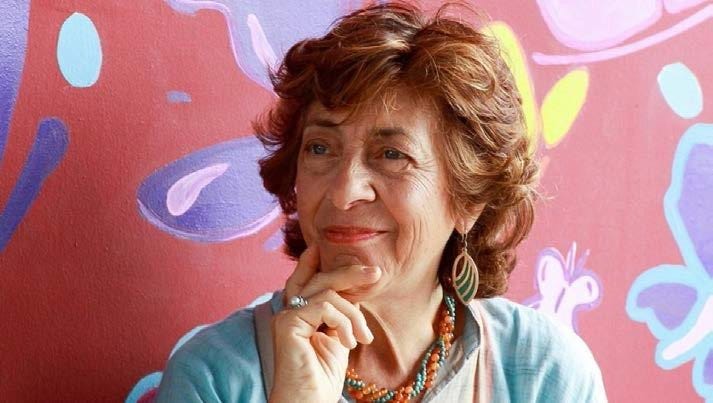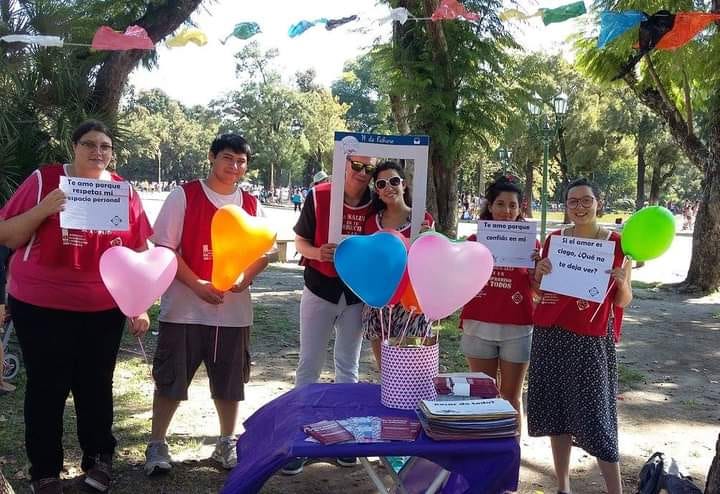Preventing child and early marriage in Argentina: Interview with Mabel Bianco, founder and President of FEIM
https://untrustfundevaw.medium.com/
22 de marzo de 2022
“Isolation, restriction of freedom and early adolescents’ pregnancies placed girls and adolescents in an unequal power relationship with their partners […] which led to a dangerous circle of violence.” Mabel Bianco, speaking about the extra challenges posed by the COVID-19 crisis
The Foundation for Studies and Research on Women (FEIM) is a women-led organization created in 1989 in Argentina. It promotes the rights of women and girls by ensuring that they are free to make decisions, can live free from violence, and have equal opportunities and access to education, health and work, among other things.
We spoke to Mabel Bianco about FEIM’s project to prevent child and early marriage, an initiative supported by the UN Trust Fund to End Violence against Women (UN Trust Fund), that uses data gathered from focus groups and research to help raise awareness about this form of violence against women and girls, inform national law to prevent child and early marriages and develop a method for the State to identify families and girls at risk.

What are your goals for this project?
Our long-term objective is to promote girls’ rights by eliminating harmful practices in Argentina, including child/early marriages, to empower girls to pursue their education, and prevent them from risks such as unintended pregnancies.
Our short-term objectives are twofold:
1) that girls between the ages of 10 and 18 from two high-frequency areas [of child marriage] understand the risks associated with child marriage and are empowered to avoid this practice; and
2) that parliamentarians, social communicators, and health and social workers understand the impact of child marriage/unions and take action.
How have you raised awareness about child/early marriage?
Our awareness raising campaign was launched on 14 February, Valentine’s Day. It will run for three weeks and will be disseminated through written and oral media, including community radios and social networks, to reach adolescent girls.
Radio spots will be translated into the Indigenous languages and will be broadcast on community radio stations and through other social media platforms, to reach the most remote places and those without good internet connection.
Brochures with simplified drawings, printed and translated into the five main Indigenous languages, will be distributed through community leaders, schools and other community settings, with the assistance of girls.

Do you see any patterns of intersecting violence against women and girls?
An analysis of the intersecting violence experienced by different women and girl populations was highly necessary to understand their varying realities (Indigenous girls, migrant girls, girls living with disabilities, etc.). [We see that] cultural and ancestral traditions, ethnic factors and stereotyped gender roles highly contribute to the persistence of child and early marriages, especially in the North-Eastern and North-Western regions of Argentina. Poverty is also a determinant factor.
What lessons did you learn from operating during the COVID-19 crisis?
The COVID-19 pandemic required some adaptations and the use of information and communication technologies [such as Zoom and WhatsApp] to sustain and strengthen communication between our team and the different stakeholders.
We used different technologies to maintain communication with activists from feminist organizations and women’s groups from all over the country, as well as with local, provincial and national authorities that promote prevention of gender-based violence. Virtual meetings also allowed us to have a more diverse participation of young people from different backgrounds.
Another lesson was the importance of [training people] to conduct interviews. We trained local women community leaders, including Indigenous women, to conduct interviews with girls and adolescents in five provinces with the highest frequency of child marriages (Salta, Jujuy, Chaco, Formosa and Misiones). Local members and leaders have an advantage because they know and are closer to the local communities.
